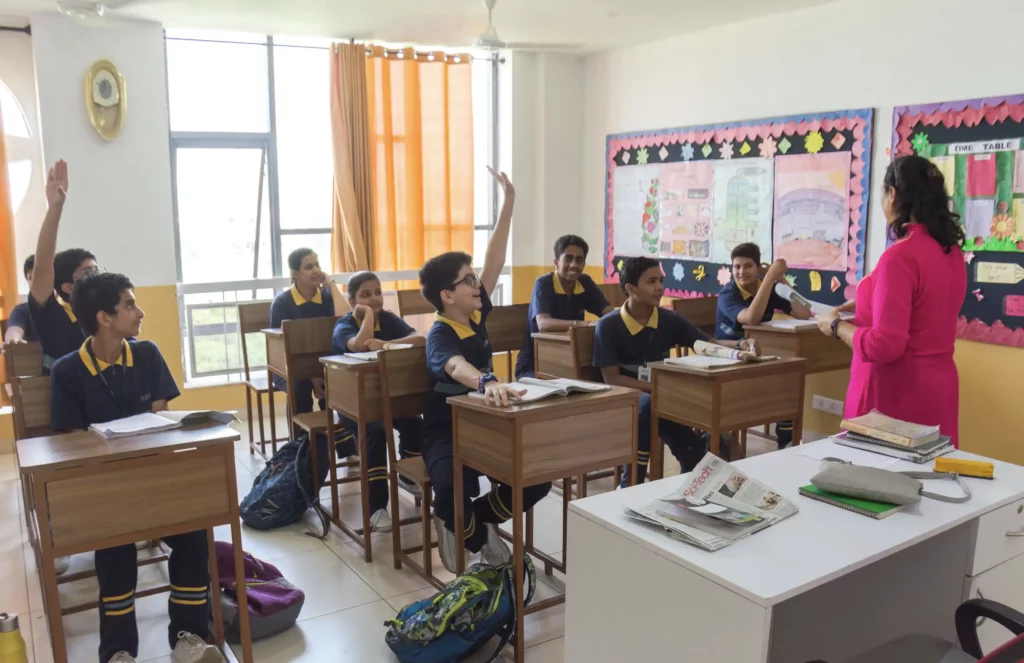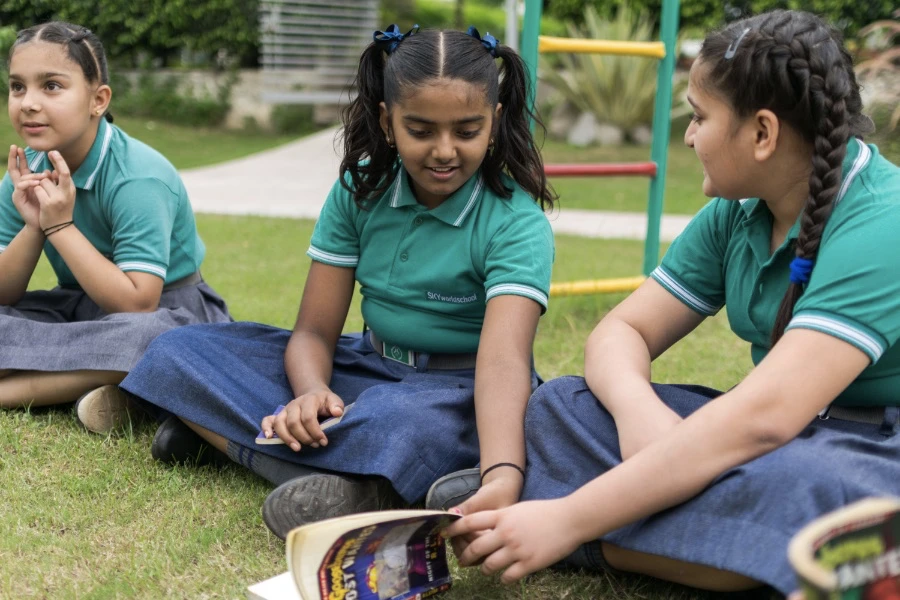Teaching
Methodology

The Sky Educare System includes structured educational activities with special emphasis on Social-Emotional Learning (SEL) for the child. The aim is to go beyond just teaching academics and fosters students’ development in their relationships, identity, emotional skills, and overall well-being.
The course curriculum is curated by Mrs. Santosh Bhandari, a National Award winner in the field of education and an educationist with 40+ years of experience. It is aimed at developing habits, skills, and mindsets that build students’ social, emotional, and academic competence.
The SEL approach helps students process and integrate their social and emotional skills in school. With SEL integration we aim to provide holistic development and a better learning environment to our children.
The integrated approach will help children to develop to their full potential.
Features of Sky Educare System

Experiential
learning
Experiential learning techniques which span Multiple Intelligences, firmly rooted in our belief that every child is unique and all children can learn.

21st
Century Skills
Focus on building 21st century skills of Communication, Critical thinking, Collaboration and Creativity.

Differentiated
instruction
Involves tailoring instruction to meet the individual needs of learners, ensuring that every student receives an education that is both challenging and supportive.

Collaborative
Learning
Collaborative Learning, Project Based Learning and Literacy Strategies applied across all curricular subjects.

Thematic
learning
Thematic learning over the entire academic year serves to establish Inter-disciplinary links across subject areas, and grade levels, making cross-curricular learning relevant for the students.

Academic
Success
Developing stronger social/emotional skills improves the academic performance of students. The ‘soft skills’ that students develop through SEL are shown to improve their attitudes towards school and as a result, increase their performance in the classroom.

Fewer
Behavioural Problems
Students engaged in SEL are less aggressive and disruptive in school. For example, if a student can learn to find his or her voice and express anger appropriately, it could prevent him or her from acting inappropriately and damaging relationships.

Less
Emotional Distress
SEL students also have fewer occurrences of depression, anxiety, stress and social withdrawal as evidenced by measures like the Children’s Manifest Anxiety Scale. As students practice the new behaviors that they learn in SEL programs, they develop stronger self-regulation skills.

Positive
Social Behavior
Students get along better with others, as reported by fellow students, teachers, parents, and independent observers. Close student-teacher relationships definitely make students want to perform better in school and have positive long-reaching benefits.
